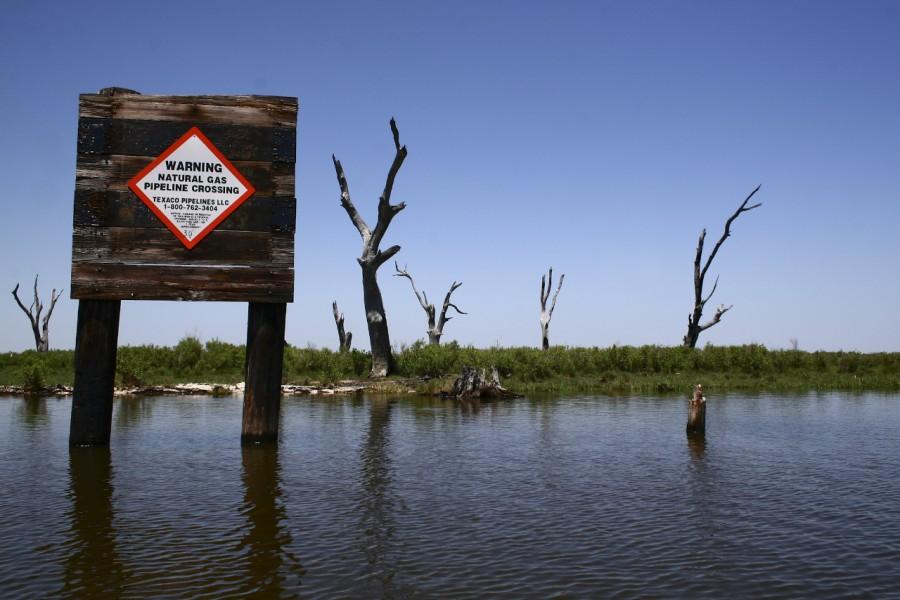At the base of the world’s 7th largest river delta, between the Mississippi and the Atchafalaya, an endangered ridge known as Pointe aux Chenes stretches south out into the coastal wetlands of southeast Louisiana. Pointe aux Chenes is French for “point of the oaks”; but in lower Pointe aux Chenes, the oaks are dying.
Delta dwellers are living on the front lines of global climate change while simultaneously bearing wit- ness to infrastructure and industry’s unintended, ill effects.
At present, scientist conclude, an acre of coastal south Louisiana erodes into the Gulf of Mexico every 90 minutes. Navigation, exploration and pipeline canals have allowed saltwater to penetrate inner marshes that once were brackish and fresh. Levees built along the Mississippi River have controlled the wet-landscape’s demise, depriving the delta of natural floodwaters and crucial sediments necessary for wetlands to thrive. Long before the BP Drilling Disaster erupted on April 20, 2010, south Louisiana was plagued by an endangered ecosystem, a fragile economy and a way life facing possible extinction.
The spill has only further exacerbated our plight. This summer, instead of sending our fishermen out to harvest the fruits of the sea, BP contracted them to set boom in our already decaying marsh. In August, our fisheries were reopened. The United States Government declared Louisiana’s seafood safe to eat and 75% of all spilled oil gone. Our fishermen and women are slowly being laid off by BP as the “clean- up” moves into a new phase.
But the future in southeast Louisiana remains unseen and uncertain.







